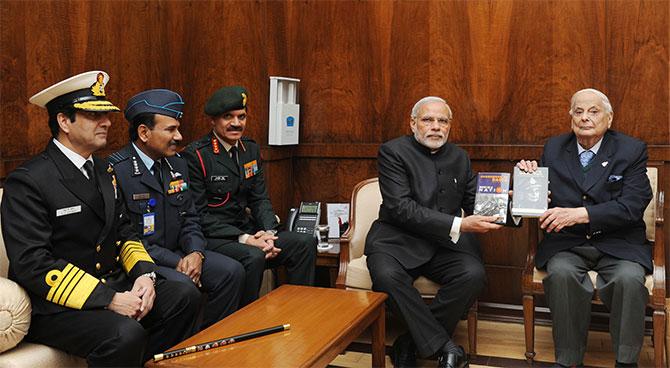prasad1
Active member

It is one of those paradoxes of Indian military history that campaigns in which we did poorly, as in 1962 against the Chinese, or stalled, as in 1965 against Pakistan, are much better documented than the one that was a clear victory in 1971.
The Army had named the 1971 campaign Operation Cactus Lily. I am not sure if the obvious logic would explain it: Tough offensive in the east, and delicate holding posture in the western sector meanwhile. But there is insufficient writing on both sectors.
Possibly it is because the pain of military disappointment inspires more creative introspection, as the rich literature on 1962 shows. Or possibly the officers brought up in the old British system also inherited its tradition of writing.
Our biggest lack, on 1971, is a Sam Manekshaw memoir. Lieutenant General Jagjit Singh Aurora, who led the Bangladesh campaign as GOC-in-C Eastern Command, too chose not to start writing, until Operation Blue Star and the later massacres of Sikhs in 1984 brought him into the public debate; he wrote some articles, and also a chapter in a contributory volume published by Roli Books in 1984 (The Punjab Story) in which I had a chapter too.
Air Chief Marshal P C Lal wrote a brilliantly honest account of the air campaign, and much later, P V S Jagan Mohan and Samir Chopra, world-class air combat historians, closed the loop with a beautifully documented and non-partisan work. But on the land campaign the senior-most military leader to weigh in was Lieutenant General J F R Jacob, who served in 1971 in the rank of Major General as Chief of Staff, Eastern Command, as deputy to General Aurora, his GOC.
As usually happens in such cases, these works -- Surrender at Dacca and An Odyssey in War and Peace -- suffer from an imperfection: They represent one man's view of the story with nothing of equal, or greater, weight to challenge it.
Jacob's -- or Jake', as he insisted his friends, even I, 35 years younger, call him -- has been widely read and admired by friends. But it was also panned by many others, including this newspaper's respected columnist on military affairs, Ajai Shukla.
http://www.rediff.com/news/column/general-jake-one-of-the-greatest-indians-ive-known/20160116.htm
